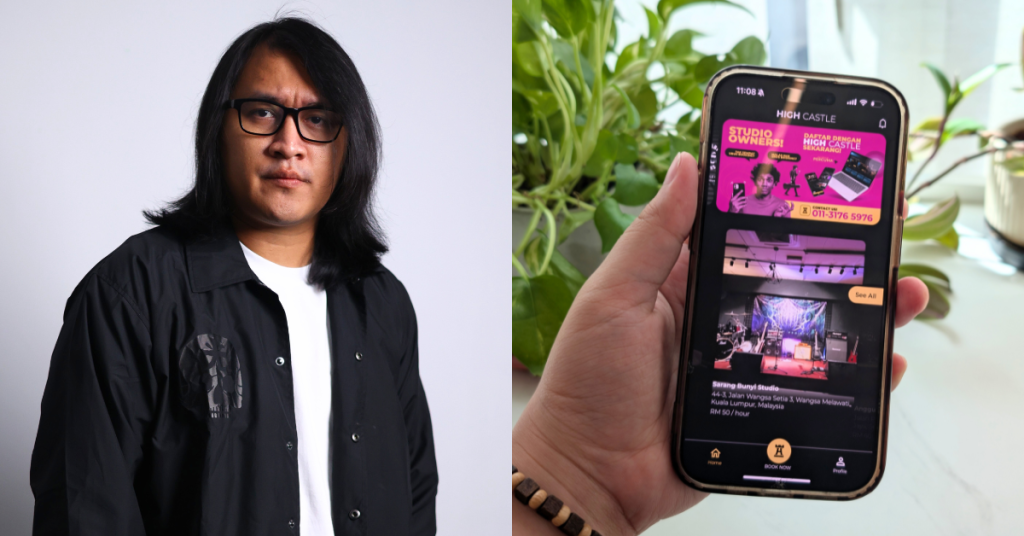“Do you play any instruments?”
This was the question asked to me during my recent attendance at PLUGIN, a conference by Cradle. It came from the team at High Castle, one of the startups that were showcased there.
“Yes, but not well,” I admitted.
But it turns out amateur musicians might just be the audience that they’re looking for.
Composing the business
Born and raised in Kota Tinggi, Johor, Elham graduated with a diploma in music performance, majoring in drums.
From recording music to tutoring, he’s been involved with all things music production since then.
Even back then, he was already involved with small entrepreneurial ventures, having started his own clothing brand back in 2010, though that didn’t work out due to lack of experience.
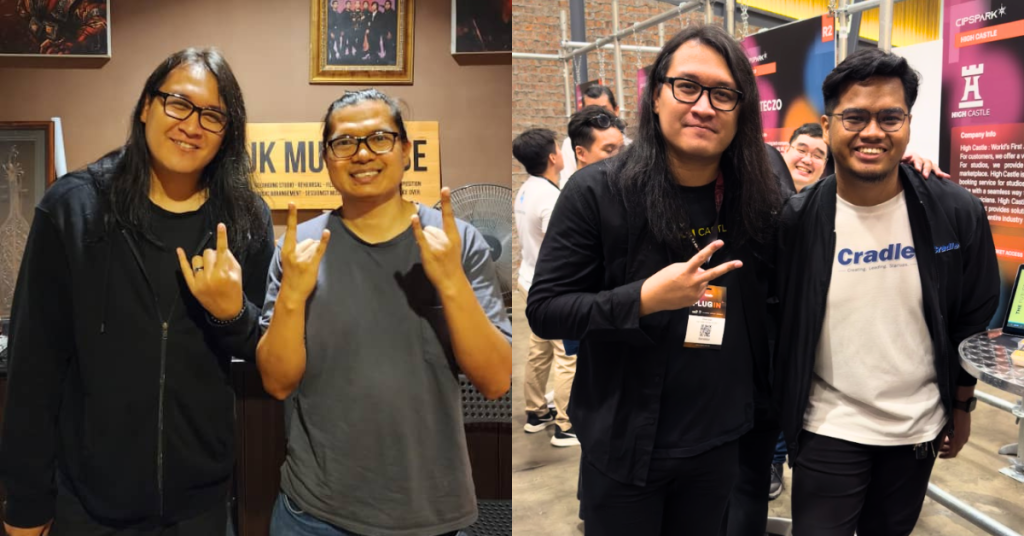
“I was a musician for a very long time. Along the way, I learnt so much about the music industry,” Elham explained. “However, I have yet to come across any company that provides a single platform that solves problems for people in the music industry.”
With his expertise, he decided to start High Castle back in 2017, named after the English translation of Elham’s hometown.
But initially, it had been a music studio in Shah Alam.
“Similar to any other businesses, there were a lot of problems faced by music studio owners as well as customers, such as booking issues, payment issues, and time availability,” he explained.
After a lot of brainstorming, he figured out that these problems could be easily solved by a single platform that connects both music studio owners and customers.
With that came the current iteration of High Castle.
Playing to two kinds of crowds
High Castle is essentially a marketplace for studios where customers can easily browse, book, and pay for studios of their liking.
More than that, they also claim to be the world’s first jamming studio booking app.
“You can say that these studios are like ‘karaoke’ but with a different experience altogether, as you are playing the music instead of singing with a minus one track,” Elham explained. “These studios are also a place for professional musicians to come for rehearsal and practice.”
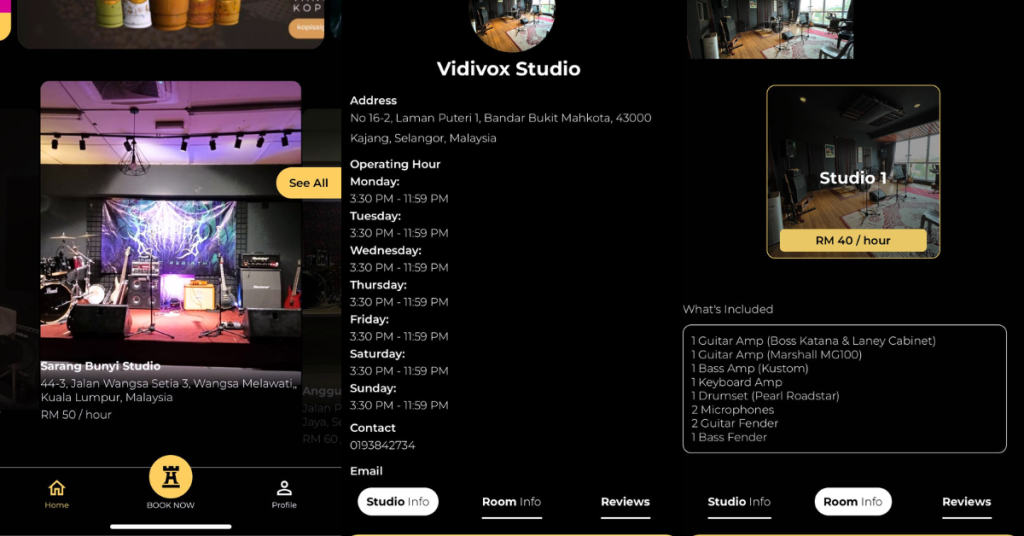
Instead of owning the studios themselves, High Castle acts as a marketplace that supports existing studios.
A bootstrapped startup, Elham and his team started on the prototype back in 2022. For a while, they tested it out, gathering feedback and reiterating it from there. In 2023, they built the second prototype, which was their minimum viable product (MVP).
Once they hit their MVP targets, they reiterated again and finally launched the official High Castle app to the public in August 2024.
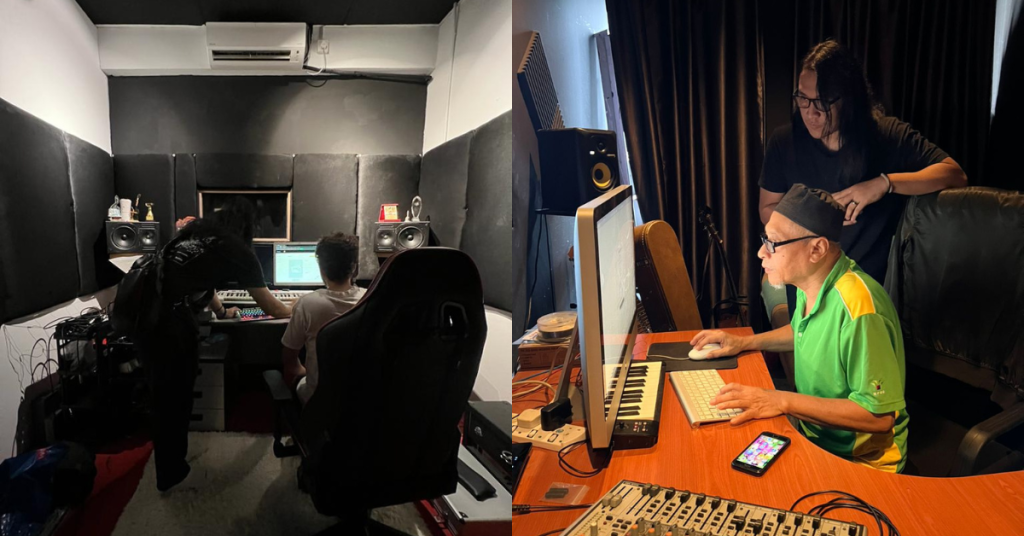
“Our mission is to be able to help musicians to find and book studios—that’s number one,” he said. “Number two, we see the app as a community platform where musicians who are not professionals can find each other to start a band to jam for fun.”
Interestingly, their market research shows that 80% of High Castle’s potential customers are not professional musicians, but amateurs who love playing music. So, these music lovers have become their main demographic.
Writing the score
After signing up on the High Castle platform, customers can browse through the marketplace, click into any studios they’re interested in, view their equipment and environment, book a date and time, make their payment, and visit the studio on the date and time they have booked.
At the moment, the pricing is set by the studio owners. Customers have to pay in full when making the booking through the application, and they can’t cancel or reschedule within 24 hours.
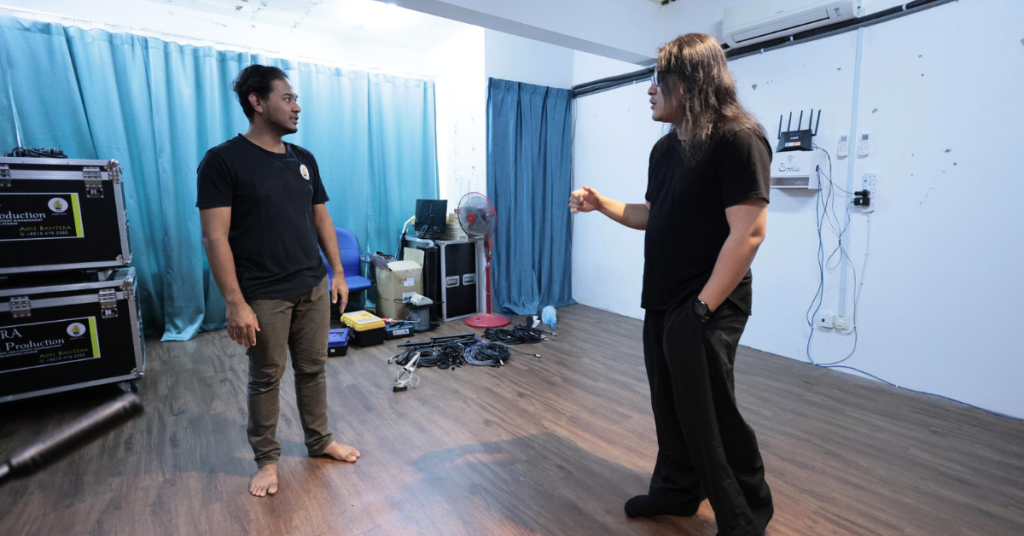
“As for the protection of studio equipment, our application terms and conditions dictate that the customers are responsible for any damages to music equipment during their jamming session,” Elham elaborated. “With the app, it is easier to track who did the damages.”
High Castle monetises by taking a 20% cut from every successful booking. In the future, they also aim to design a membership model whereby each studio can have a standardised pricing. This, Elham believes, will attract more users to the platform.
Jamming along
In just three months of launching, the app has reached over 1,000 downloads with very little marketing campaign.
Of course, there have been many challenges along this journey, particularly with the development and scaling of the app.
“We thought that it would be as easy as having a booking system, like any other company that does the same thing,” Elham recalled. “Turns out, our market is somewhat unique in the sense of our customers’ behaviour, the studios’ operating hours, and the experience that we want to provide for the customers.”
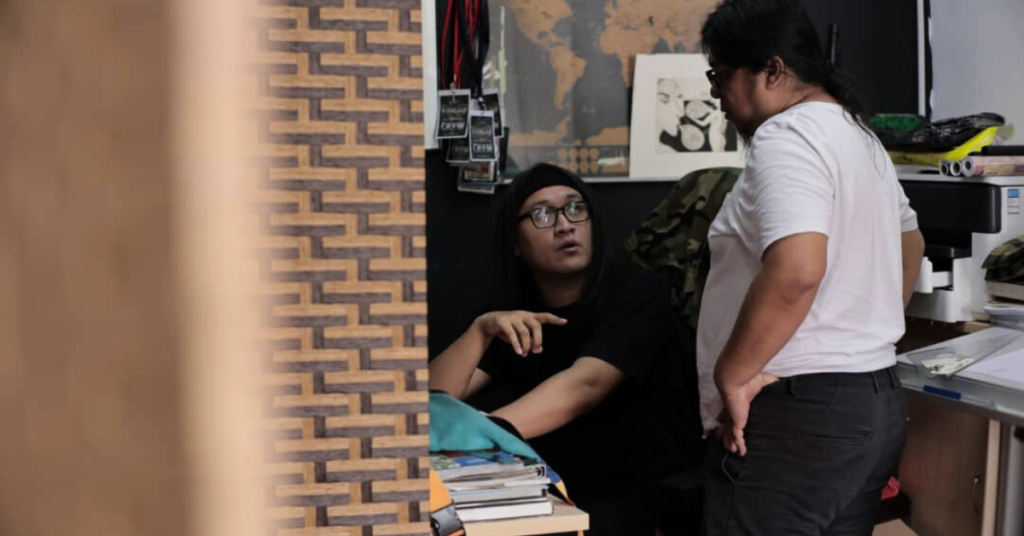
With that, the team had to do a lot of testing and experimentation, facing trials and errors at every corner.
“But hey, that’s part of the job hazard. So we always strive to find solutions and fixes every single day,” the founder said.
Despite their limited resources, Elham is proud of how far they’ve come. “However, to achieve higher numbers and bigger markets, we need more hands and funds to make that happen.”
Although the startup began as a bootstrapped venture, they’ve since managed to get some funding from angel investors. After building the second prototype, they also applied for the CIP Spark grant from the Cradle Fund. With that, they’ve managed to build the current version of the app.
For 2025, Elham aims to use their funding to improve and scale the capabilities of the High Castle Application, hire key team members, and be more aggressive in their marketing efforts.
“We aim to tap into a bigger market nationwide and eventually, worldwide,” Elham concluded.
Featured Image Credit: High Castle


